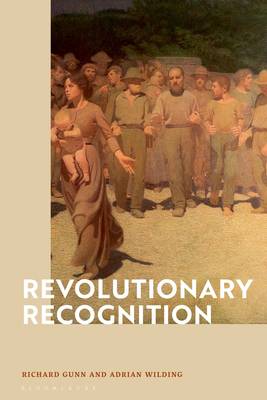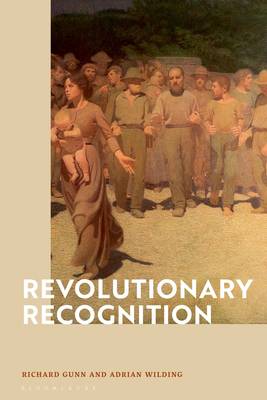
- Afhalen na 1 uur in een winkel met voorraad
- Gratis thuislevering in België vanaf € 30
- Ruim aanbod met 7 miljoen producten
- Afhalen na 1 uur in een winkel met voorraad
- Gratis thuislevering in België vanaf € 30
- Ruim aanbod met 7 miljoen producten
Zoeken
Omschrijving
Revolutionary Recognition represents a major contribution to contemporary political theory. It argues that human emancipation is only possible in a society characterised by 'mutual recognition'. In present-day political theory, the term 'recognition' has become popular and widely discussed, but has become synonymous with reformist scenarios, such as social democratic politics and the politics of identity.
Richard Gunn and Adrian Wilding undertake a comprehensive critique of existing understandings of recognition, particularly those of Axel Honneth and Charles Taylor, returning 'recognition' to its original meaning in the work of Hegel and Marx, and showing how mutual recognition has revolutionary rather than merely reformist implications. Gunn's and Wilding's work is unapologetically political and introduces a new principle - 'mutual recognition' - around which radical politics can organise. This book is a ground-breaking contribution to left wing theory and is relevant as both a scholarly text and a rallying cry to the Left.Specificaties
Betrokkenen
- Auteur(s):
- Uitgeverij:
Inhoud
- Aantal bladzijden:
- 192
- Taal:
- Engels
Eigenschappen
- Productcode (EAN):
- 9781350199279
- Verschijningsdatum:
- 28/07/2022
- Uitvoering:
- Paperback
- Formaat:
- Trade paperback (VS)
- Afmetingen:
- 156 mm x 234 mm
- Gewicht:
- 267 g

Alleen bij Standaard Boekhandel
+ 145 punten op je klantenkaart van Standaard Boekhandel
Beoordelingen
We publiceren alleen reviews die voldoen aan de voorwaarden voor reviews. Bekijk onze voorwaarden voor reviews.







